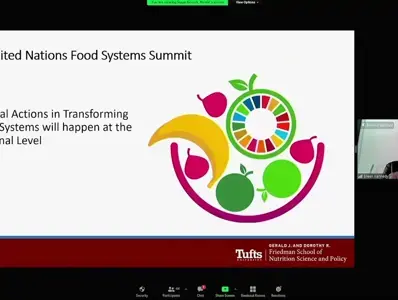Presented at Nestle Research and Development Scientific Roundtable - December 2021 Ending malnutrition is one of the six ‘Action Areas’ within the UN Decade of Action on Nutrition 2016 - 2025. Transforming the food system to support healthy, sustainable diets is essential to achieving Millennium Development Goals 2 (zero hunger) and 12 (responsible consumption and production. Around 40% of the global population (2.2 billion people) are currently overweight, with 772 million affected by obesity. The obesity epidemic has increased understanding of overweight as part of a malnutrition continuum. Around 185 million people around the world cannot afford a diet that supplies daily energy requirements, 1.5 billion cannot afford a nutritionally adequate diet and 3 billion cannot afford a healthy diet. These problems are concentrated particularly in Africa, South Asia and South East Asia. Even for the 60% of the global population that can afford a healthy diet, culture and taste often results in unhealthy choices being made instead. We need bold, feasible, sustainable initiatives to ensure the availability, accessibility, desirability and affordability of healthy diets including nutrient rich foods. Investment in research is needed to find the most practical ways of achieving this.

